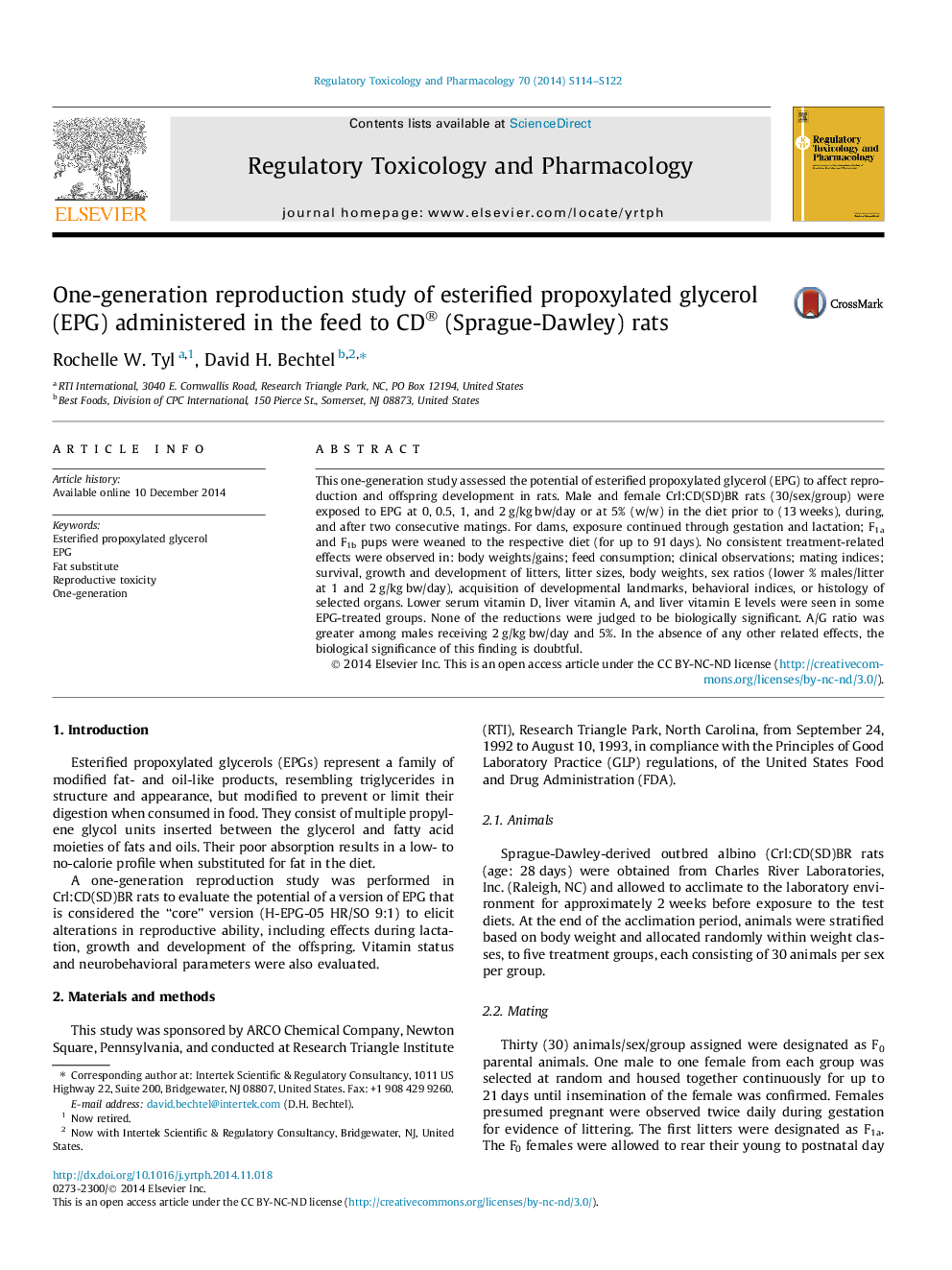| Article ID | Journal | Published Year | Pages | File Type |
|---|---|---|---|---|
| 5857018 | Regulatory Toxicology and Pharmacology | 2014 | 9 Pages |
â¢Rats received dietary esterified propoxylated glycerol (EPG) from mating to weaning.â¢No effects on reproduction or offspring development were observed.â¢Some EPG-treated groups had lower serum vitamin D and lower liver vitamins A and E.â¢The vitamin findings were not considered biologically significant.
This one-generation study assessed the potential of esterified propoxylated glycerol (EPG) to affect reproduction and offspring development in rats. Male and female Crl:CD(SD)BR rats (30/sex/group) were exposed to EPG at 0, 0.5, 1, and 2 g/kg bw/day or at 5% (w/w) in the diet prior to (13 weeks), during, and after two consecutive matings. For dams, exposure continued through gestation and lactation; F1a and F1b pups were weaned to the respective diet (for up to 91 days). No consistent treatment-related effects were observed in: body weights/gains; feed consumption; clinical observations; mating indices; survival, growth and development of litters, litter sizes, body weights, sex ratios (lower % males/litter at 1 and 2 g/kg bw/day), acquisition of developmental landmarks, behavioral indices, or histology of selected organs. Lower serum vitamin D, liver vitamin A, and liver vitamin E levels were seen in some EPG-treated groups. None of the reductions were judged to be biologically significant. A/G ratio was greater among males receiving 2 g/kg bw/day and 5%. In the absence of any other related effects, the biological significance of this finding is doubtful.
